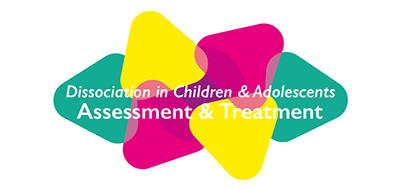
Syllabus
This training is competency based and each professional will be required to start working with a child or adolescent, who has experienced trauma and suffers from trauma related and/or dissociative symptoms. The training will include practical case discussions with participants, regarding the ongoing process of helping these children and adolescents, as well as group supervision, providing time for questions and answers.
The objectives of this training will be to equip professionals with:
- The background information necessary to have a comprehensive understanding of dissociation in children and adolescents.
- Assessment tools in order to enhance your already existing assessment of children and adolescents with trauma and dissociative symptoms.
- An understanding of the psycho-education that is needed for the child and young person on how to make sense of dissociation.
- An opportunity to experiment using metaphors to enable children and adolescents to understand their internal experiences better.
- Information on how to access dissociation in different traumatized children and adolescents and how to start the process of working with the child or adolescent.
- Illustrations through practical examples, drawings, sand tray and DVD’s on how to provide effective therapy for a dissociative child and different tools that can be used to do this.
- Practical examples of how to use EMDR/bilateral stimulation effectively, when processing trauma in dissociative children and adolescents.
- Knowledge on how to work with perpetrator introjects. (violent, aggressive and sexual behaviour)
- A comprehensive understanding of how to work with dissociation and enable the child or young person to move towards integration.
Course Structure
-
MODULE 1 (Month 1 & 2):
- Introduction .
- Pre-test on Barriers to Attachment, Taming the Tiger and Best Kept Secret.
- Video sessions 1-6.
- Post-test on Barriers to Attachment, Taming the Tiger and Best Kept Secret.
- Video sessions 7-10: Assessing the Child or Adolescent.
- Articles & Recommended Reading.
- Handouts.
- Work through questionnaires.
- Assignment 1: Assess 1 child and submit summary report.
- Live Video Clinical Case Discussion.
-
MODULE 2 (Month 3 & 4)
- Video Sessions 1-4.
- Recommended Reading 1.
- 5+ Q & A Video Sessions.
- Recommended Reading 2.
- Video Sessions 5-15.
- Article download.
- Handouts.
- Review Resources.
- Assignment 2: Assess 1 child and submit summary report.
- Live Video Clinical Case Discussion.
-
MODULE 3 (Month 5 & 6)
- Video sessions 1-13.
- Mandatory reading.
- Article Download.
- Assignment 3: Assess 1 child and submit summary report.
- Live Video Clinical Case Discussion.
- Archive Day 1 (Full day on-site to view clinical material).
-
MODULE 4 (Month 7 & 8)
- Video sessions 1-6.
- 8+ Q & A Video Sessions.
- Recommended Reading.
- Article Download.
- Handouts.
- Assignment 4: Submit summary report.
- Live Video Clinical Case Discussion.
-
MODULE 5 (Month 9 & 10)
- Video Sessions 1-9.
- 5 + Q & A Video Sessions.
- Recommended Reading.
- Assignment 5: Submit summary report.
- Live Video Clinical Case Discussion.
- Archive Day 2 (Full day on-site to view clinical material).
-
MODULE 6 (Month 11 & 12)
- Video Sessions 1-3.
- 10 + Q & A Video Sessions.
- Handouts.
- Assignment 6: Submit summary report.
- Live Video Clinical Case Discussion.
- CPD Certificate for core modules.
-
MODULE 7 - EMDR for children with complex trauma. (Month 13 & 14)
- Video Sessions 1-8.
- Handouts
- Live Video Clinical Case Discussion.
- CPD Certificate for EMDR
-
MODULE 8 - Pre-birth Trauma (Month 15 & 16)
- Video Sessions 1-11.
- Handouts.
- Live Video Clinical Case Discussion.
- CPD Certificate for Pre-birth Trauma.
Archive Day 3 (Full day on-site to view clinical material).
About the trainer:
Dr. Renée P Marks has worked in the field of child trauma and dissociation for the past 23 years. She is specializes in children with complex problems and behaviours due to unprocessed complex trauma and dissociation. She is the clinical lead in a private adoption support agency. Dr. Marks is also a supervisor and consultant for therapists and organisations specializing in children and adolescents.
Dr. Marks is a member of the child and adolescent committee of the International Society of Trauma and Dissociation (ISSTD). She is also one of the accredited international trainers, on the topic of trauma and dissociation in children and adolescents. Dr. Marks is a regular trainer at the international conferences of the ISSTD and ESTD. She is also the chair of the child and adolescent committee of the European Society on Trauma and Dissociation. Dr. Marks trains professionals around the world, on the topic of trauma and dissociation in children and adolescents; she has trained teams in the UK, Europe, USA, Canada, Hong Kong and South Africa.
The training that Dr. Marks presents is always richly illustrated with practical case examples, photos of drawings and sand trays as well as DVD examples of therapy sessions with children and adolescents.
Important
Information

Contact Us
Terms & Conditions
Privacy Policy
Copyright © 2016 - 2018 Child Trauma and Dissociation Ltd & Tellen Ltd. All rights reserved.
No part of this site may be copied or reproduced